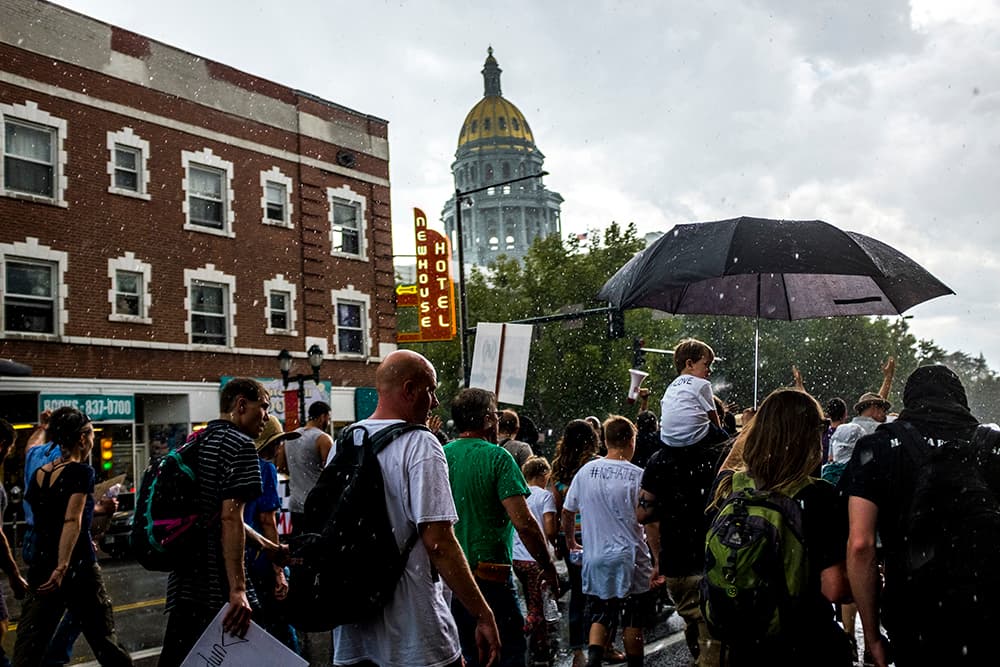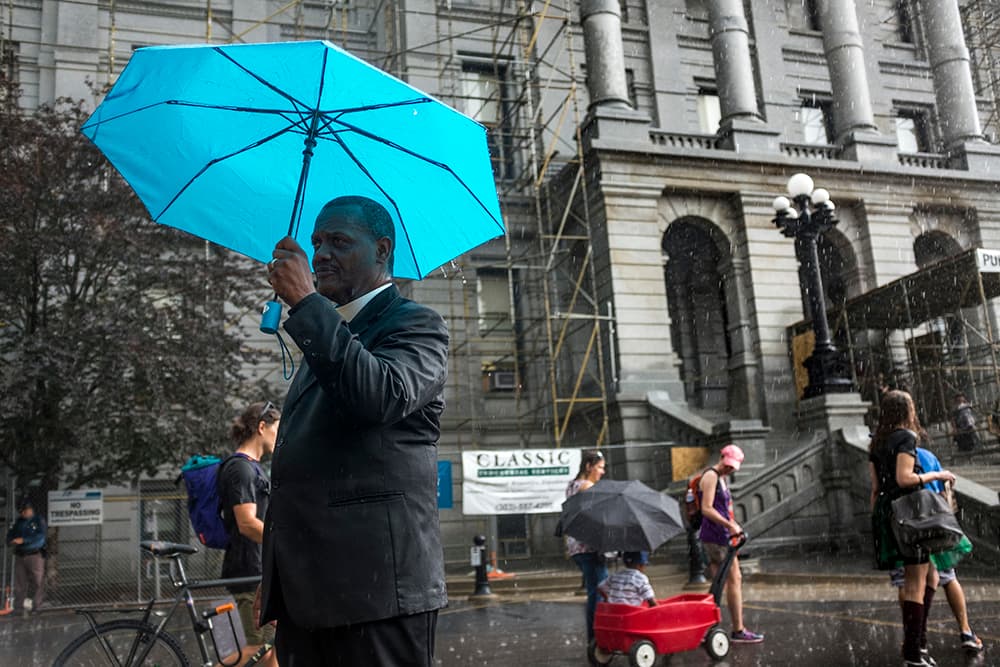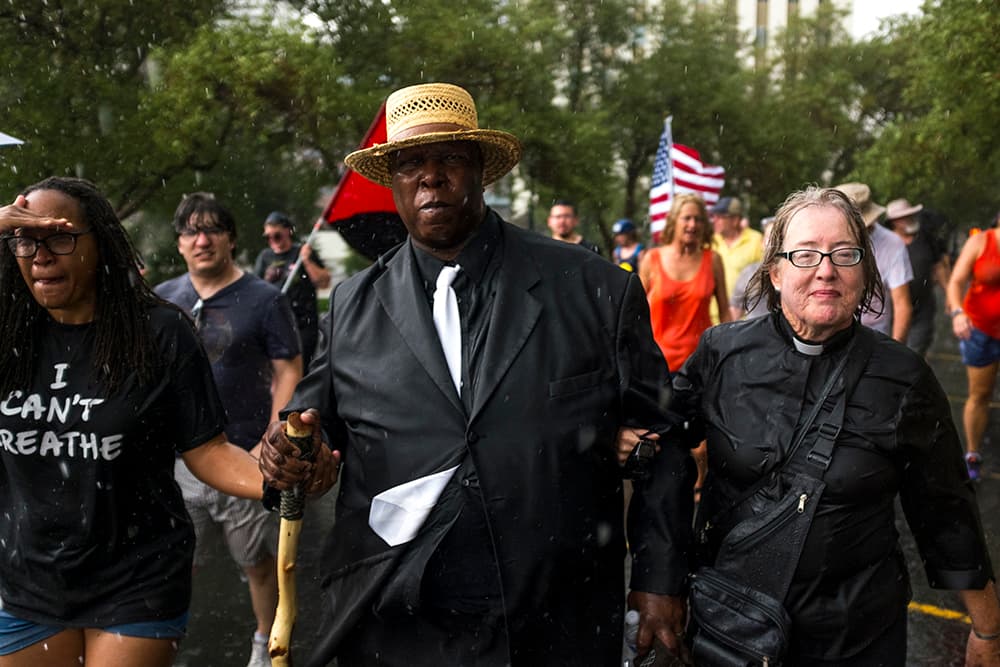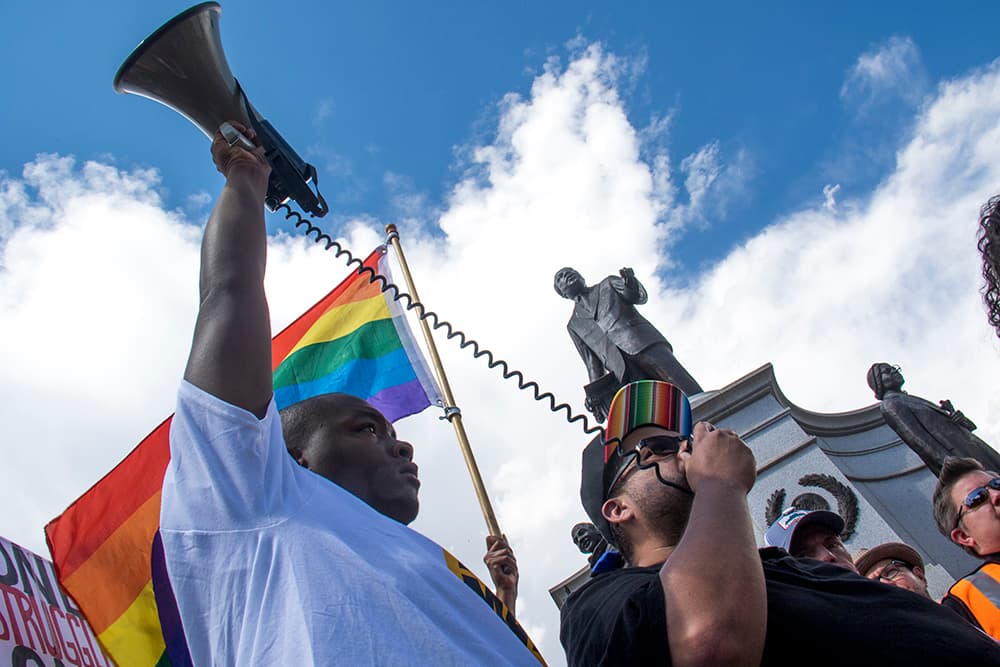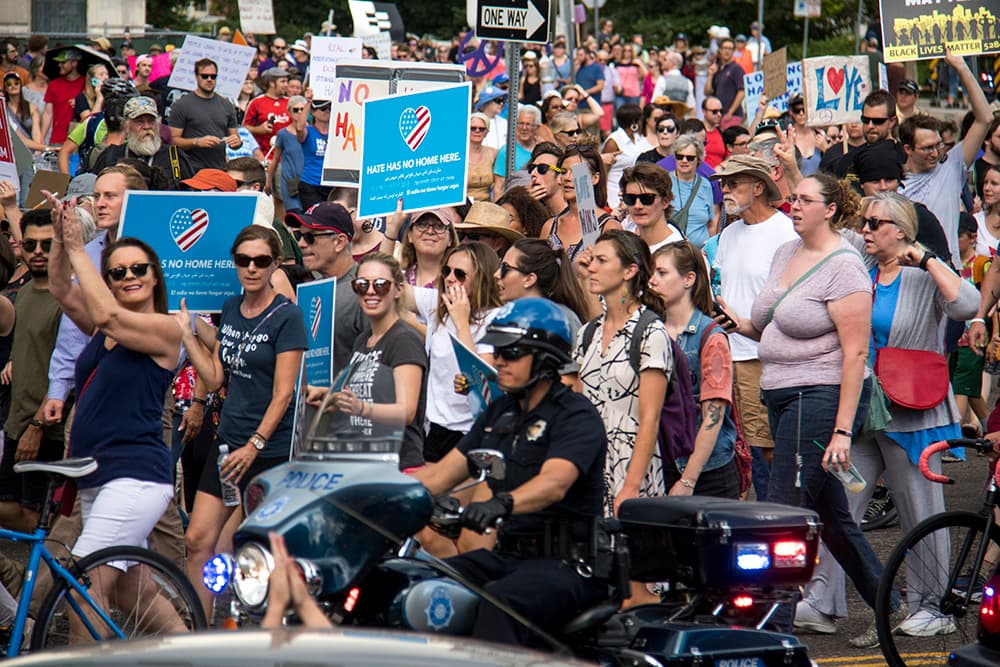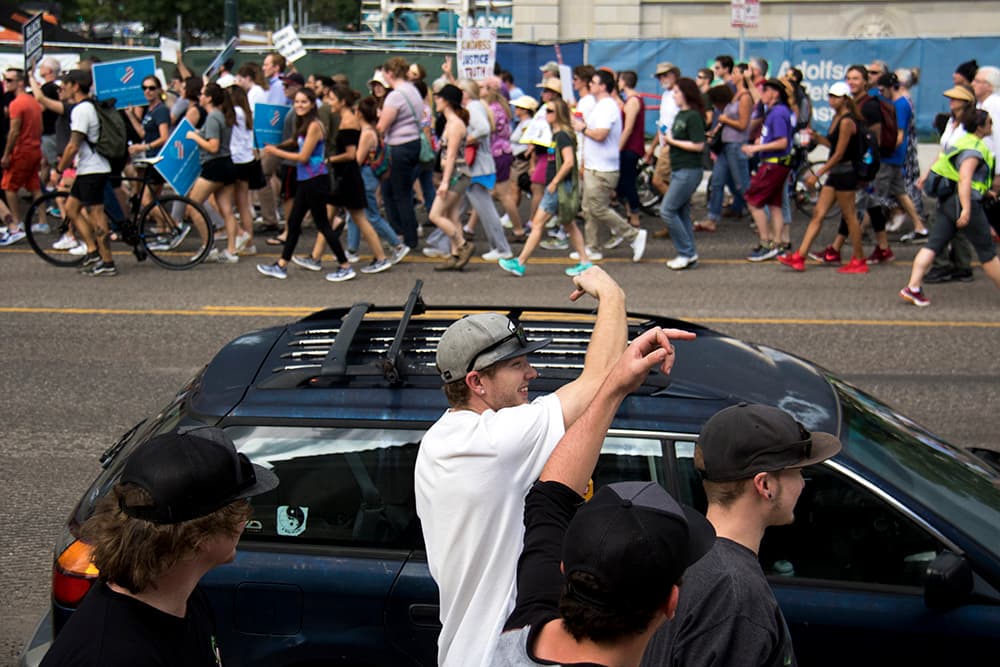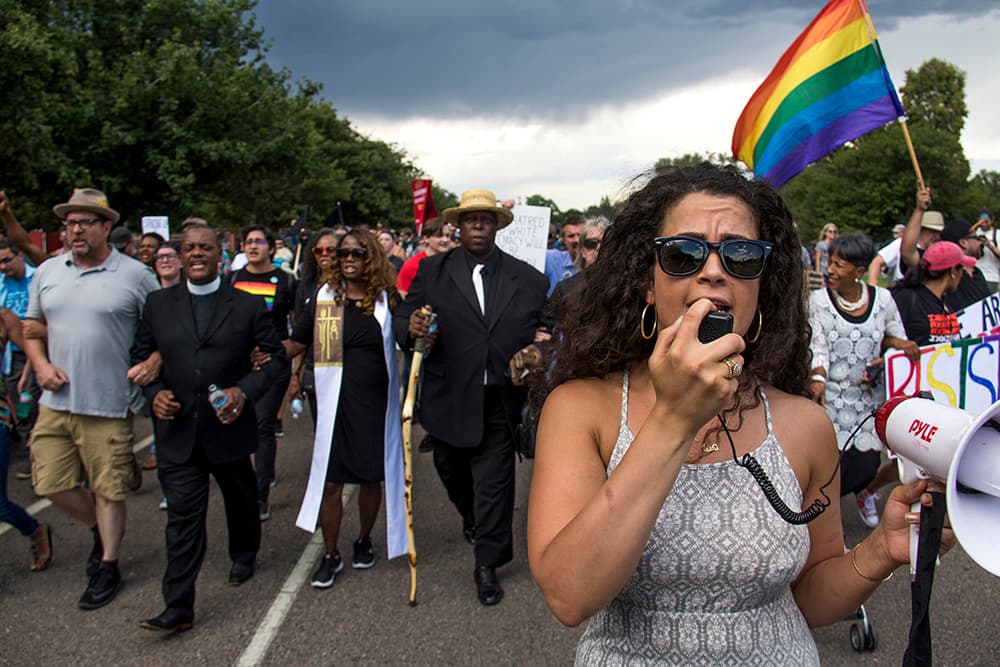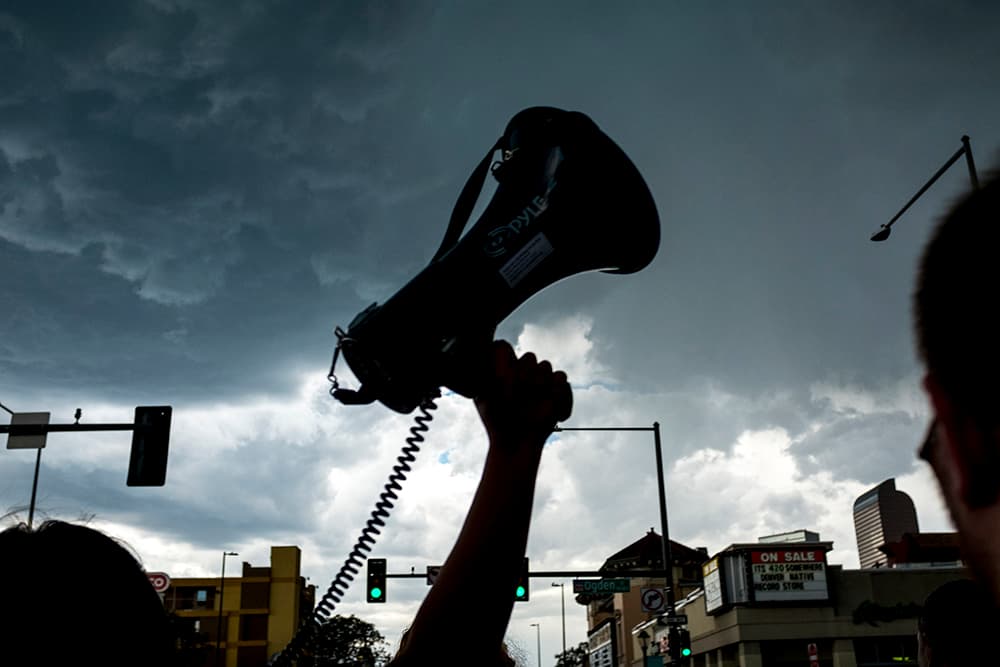
On Sunday afternoon several hundred people rallied at City Park in response to a white supremacist demonstration and violence in Charlottesville, Virginia, over the weekend. While the rally began as an outcry against the events in Virginia, local leaders soon shifted gears to relate the tumult to ongoing local issues like gentrification and sanctuary city policy.
Under City Park's Martin Luther King, Jr., memorial, Shorter Community AME Church Rev. Timothy Tyler took the bullhorn. He told the crowd that his staff asked him not to travel to Charlottesville this weekend.
"They know I will travel to where hell is," he said, "I don’t have to go to Charlottesville because we have enough work to do right here.”
Tyler invoked the ongoing struggles over growth, affordable housing and the I-70 expansion, "sanctuary city" policy on immigration and the death of Michael Marshall in Denver's downtown detention facility as examples of white supremacy that, he said, share roots with the conflicts in Virginia.
Tyler said Denverites live in a "glass bubble," thinking that the Nazi and Ku Klux Klan turnout in Charlottesville could not happen here.
"We cannot pretend that the whole world is going to hell and Denver is some kind of nirvana," he shouted to the crowd.
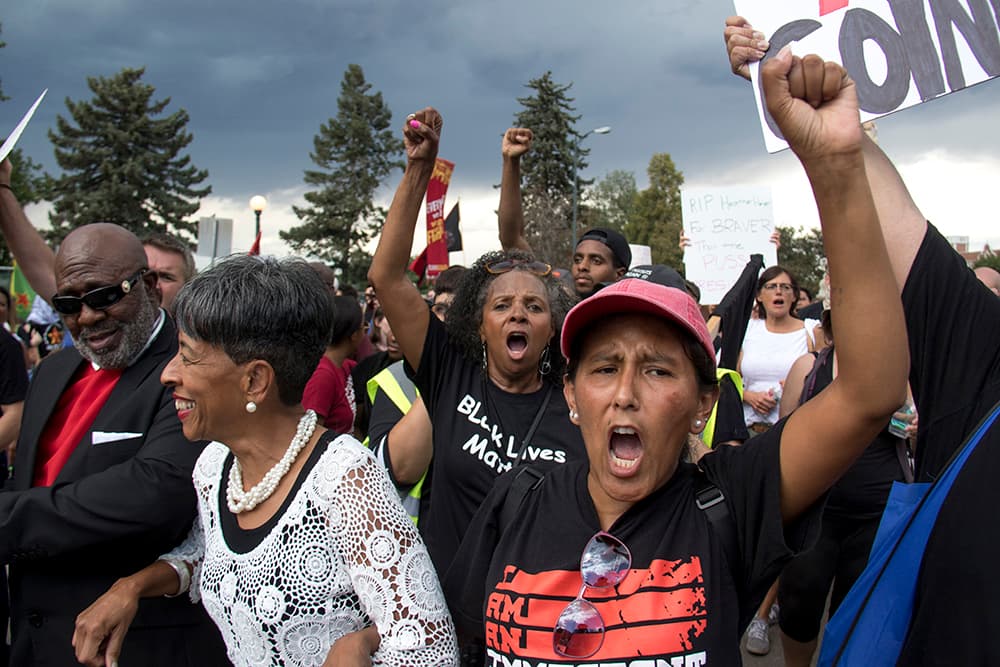
Activists representing immigration issues also related their individual struggles to a larger white supremacist movement.
"In Charlottesville, they were chanting about ending immigration," said Julie Gonzales of the Meyer Law office. "There’s a very deep question as to who belongs in this country, who’s welcome, whose voice matters and whose does not.”
After a rain-soaked march down Colfax Avenue to the Capitol steps, speakers repeated similar themes. Among their cited symbols of white supremacy was Stapleton, named for Denver's Ku Klux Klansman mayor, and the statue just feet from the Capitol steps that commemorates white soldiers' victory in what became known as the Sand Creek Massacre.
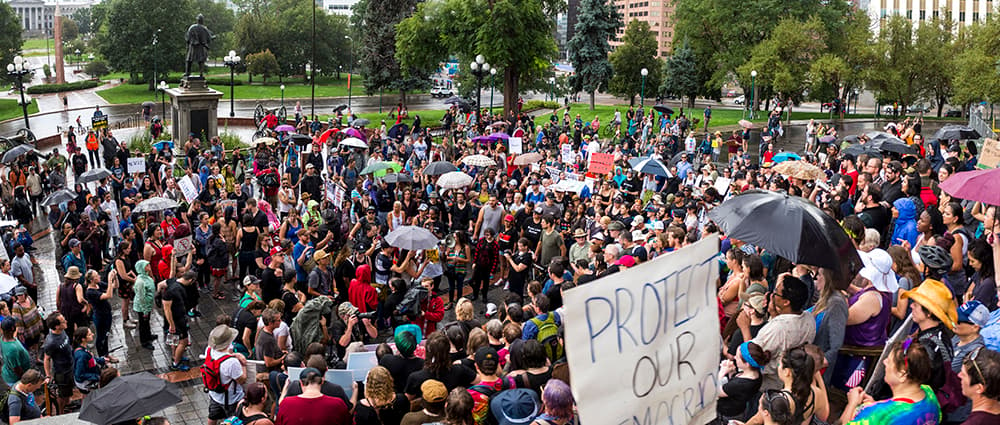
While each symbol mentioned throughout the rally has been subject to protest in recent years, these demonstrators in the rain brought them all to the fore as equal parts of a much larger societal problem. It was clear that the protest leaders were not suddenly stirred by the events in Virginia.
"We did not come here to preach to Charlottesville," Rev. Tyler said to the crowd. "Charlottesville just helped us to wake up to our own problems."
